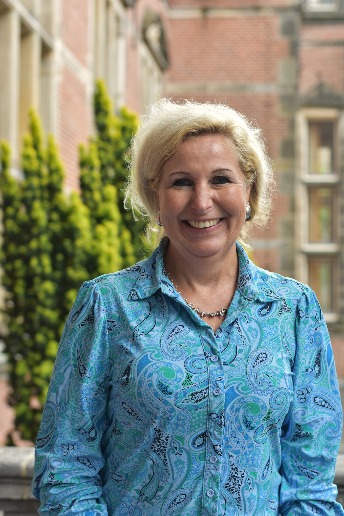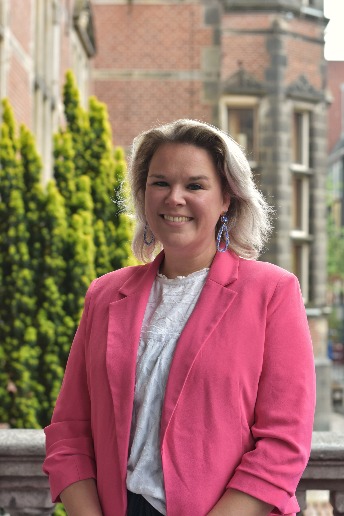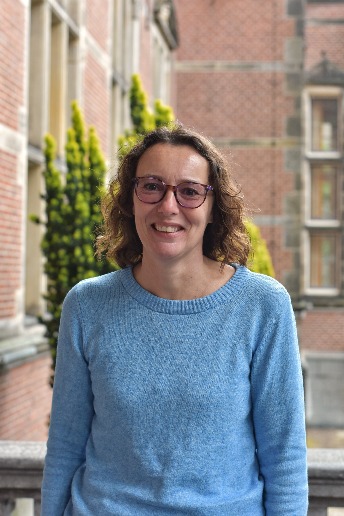What should I do in the event of undesirable behaviour?

Are you experiencing undesirable behaviour such as unequal treatment, (sexual) harassment, stalking, aggression, bullying, or discrimination? Please know that the UG is here to support you with a listening ear and expert advice.
For more information about where to go for help, to express a concern, or to make a report, please visit the Central Contact and Information Point for Social Safety. This reporting and information point has been set up to guide you if you are confronted with undesirable behaviour.
Have you witnessed or experienced undesirable behaviour?
Have you experienced or witnessed undesirable behavior? Don’t keep it to yourself. Try to confide in someone you trust. If the situation allows, you can address the person displaying the undesirable behavior (possibly with the support of someone else). Sometimes this can already make a big difference. It often helps to describe the specific behavior that bothers you and explain how it affects you. Stay calm and clear, even if the other person initially reacts defensively.
If such a conversation isn’t possible or doesn’t lead to a satisfactory outcome, contact the coordinators of the Central Contact and Information Point for Social Safety through this web form. On the web form, briefly describe your request for help and/or the concern or report you want to raise. Based on this information, the coordinators will advise you on the best place for support. Within five working days you will receive a response at the email address you provide. You can also submit a concern or report anonymously; in that case, do not provide an email address on the web form.
Do you need immediate assistance?
If you prefer to contact the confidential advisor or ombudsman directly, you can do so. Important: if you need immediate help, please use the following options:
-
Call (050) 363 8050 if your safety is immediately at risk at a RUG location; call 112 if you're not on campus.
-
In case of an unwanted sexual experience, contact the Center for Sexual Violence (Centrum voor Seksueel Geweld) directly at 0800 0188.
-
Naturally, you can also reach out to your General Practitioner (or the out-of-hours GP service).
-
If you're afraid you might harm yourself (or suspect someone else might), call or chat with 113 or 0800-0113, or visit 113.nl.
Have you experienced undesirable behaviour outside the UG?
If you experience such behavior outside the RUG, you can turn to the police, the Center for Sexual Violence, victim support, confidential advisors at student associations, or the ACII (for incidents during the introduction period).
If undesirable behavior outside the RUG affects your work or studies, you can turn to your supervisor or HR-advisor, or to your lecturer, mentor, study advisor, or student counsellor.
How does the Central Contact and Information Point work?
The RUG has appointed three coordinators for the Contact and Information Point:



Based on the information you provide on the web form, the coordinators will advise you on where best to go with your request for help, signal or report. If they need more information to refer you properly, they will contact you for a brief intake or follow-up question. All contact with the coordinators is always confidential; they will not do anything without your permission. The registered information is accessible only to the coordinators, ensuring your privacy is fully protected.
The coordinators have various referral options. Below you can find more information about what is available for support.
Frequently Asked Questions
Information about where to go:
for students
-
You can go to your lecturer or mentor. A lecturer or mentor has no formal confidentiality task, but it may still be a good idea to talk to them, especially if you know and trust them.
-
You can contact the Study advisors and/or student counselors. They do have a duty of confidentiality. They can listen to you and inform you of possible follow-up steps and available support. A study advisor is affiliated with your degree programme and Faculty. A student counsellor is not; they are independent and fall under the Student Service Centre.
-
You can also turn to the Confidential Advisor. The Confidential Advisor can brainstorm with you about options for reaching an informal solution, but they can also explain how to submit a formal complaint and how that procedure works. The confidential advisor is independent, guarantees confidentiality and will not take any action without your explicit consent. Good to know: the confidential advisor does not mediate but can organize mediation.
-
You can contact the Ombudsperson if you believe that the situation is structurally unsafe or unhealthy, or that it involves an error in the system. They provide advice and explore possible solutions with you. Only with your permission can they mediate, act as an independent discussion leader, refer you, and/or conduct an investigation.
for staff
-
Talk to your manager about the situation. They can listen to you, think along about solutions, act as a moderator, or raise the issue with the person concerned. If your manager is the person engaging in unacceptable behaviour, talk to their manager.
-
If you prefer to talk to someone who is slightly further removed from the situation than your manager, you can also make an appointment with your HR advisor. Your HR advisor can listen, think along, and help you with information on the UG’s policy and with legislation and regulations that may apply to your situation.
-
You can also turn to the Confidential Advisor. The confidential advisor can brainstorm with you about options for reaching an informal solution, but they can also explain how to submit a formal complaint and how that procedure works. The confidential advisor is independent, guarantees confidentiality and will not take any action without your explicit consent. Good to know: the confidential advisor does not mediate but can organize mediation.
-
You can contact the Ombudsperson if you believe that the situation is structurally unsafe or unhealthy, or that it involves an error in the system. They provide advice and explore possible solutions with you. Only with your permission can they mediate, act as an independent discussion leader, refer you, and/or conduct an investigation.
for PhD candidates
-
Talk to your manager about the situation. They can listen to you, think along about solutions, act as a moderator, or raise the issue with the person concerned. If your manager is the person engaging in unacceptable behaviour, talk to their manager.
-
If you prefer to talk to someone who is slightly further removed from the situation than your manager, you can also make an appointment with your HR advisor. Your HR advisor can listen, think along, and help you with information on the UG’s policy and with legislation and regulations that may apply to your situation.
-
PhD candidates can also talk to the Graduate School coordinator. PhD coordinators are often embedded in the research group and have no formal confidentiality task, but it may still be a good idea to talk to them, for example because you know them and contact with them feels safe and familiar.
-
If you work at FSE or UMCG and would like to have a confidential conversation, you can also contact one of the PhD counsellors.
-
You can also turn to the Confidential Advisor. The Confidential Advisor can brainstorm with you about options for reaching an informal solution, but they can also explain how to submit a formal complaint and how that procedure works. The confidential advisor is independent, guarantees confidentiality and will not take any action without your explicit consent. Good to know: the confidential advisor does not mediate but can organize mediation.
-
You can contact the Ombudsperson if you believe that the situation is structurally unsafe or unhealthy, or that it involves an error in the system, you can contact the Ombudsperson. They provide advice and explore possible solutions with you. Only with your permission can they mediate, act as an independent discussion leader, refer you, and/or conduct an investigation.
Call for Action
We would like to emphasize our request for action. If you have experienced or witnessed any undesirable behaviour within the UG, please report it to the Central Contact and Information Point for Social Safety. Your report will contribute to a safe and inclusive study and work environment for yourself and for others. Even if you are unsure about its impact or relevance, we would still like to hear from you. Please feel free to contact the coordinators of the Central Contact and Information Point for Social Safety. They’re here to support you!
Do you have a general question about social safety within the UG? Please email it to the Social Safety programme team: socialsafety rug.nl.
